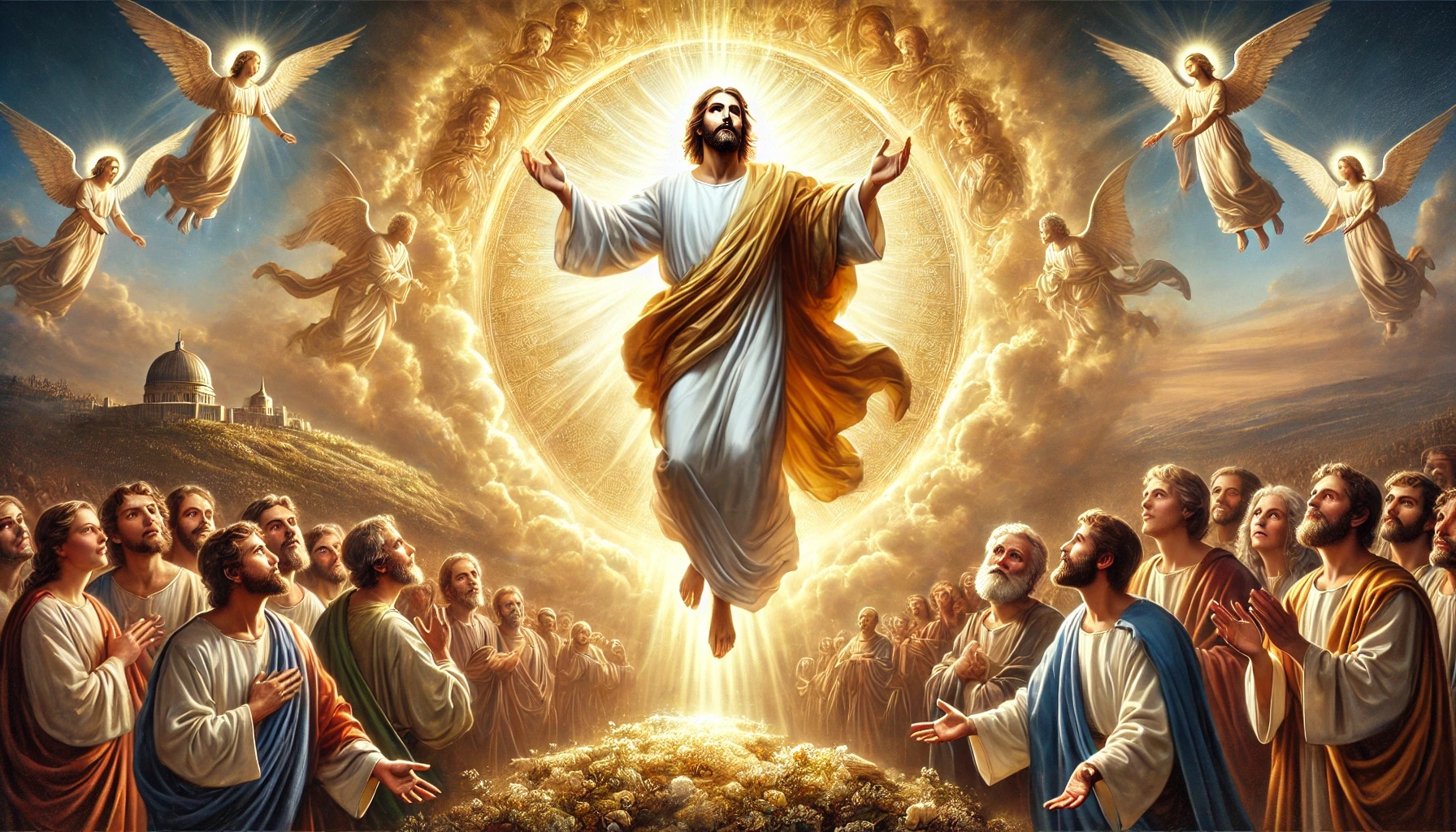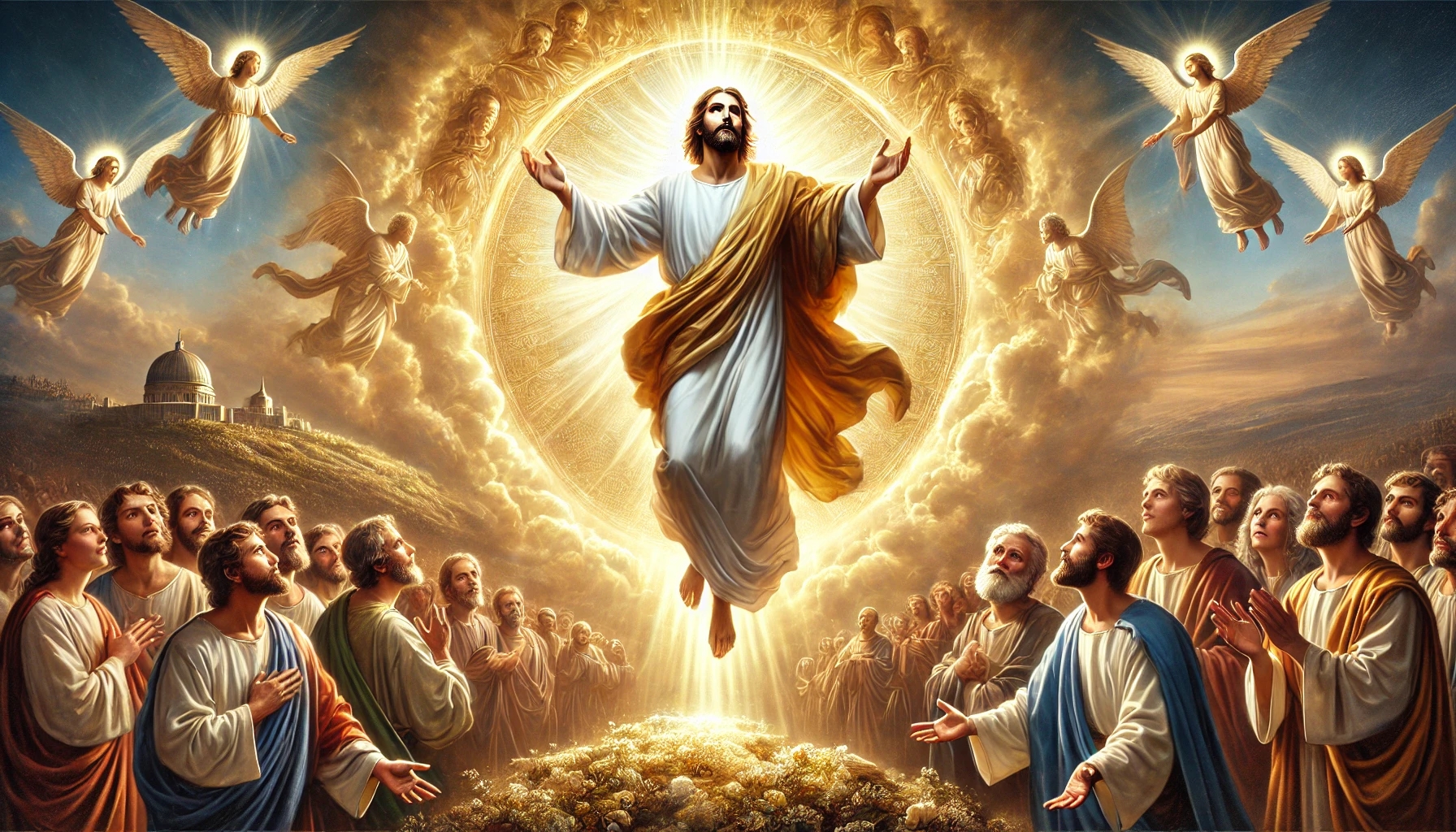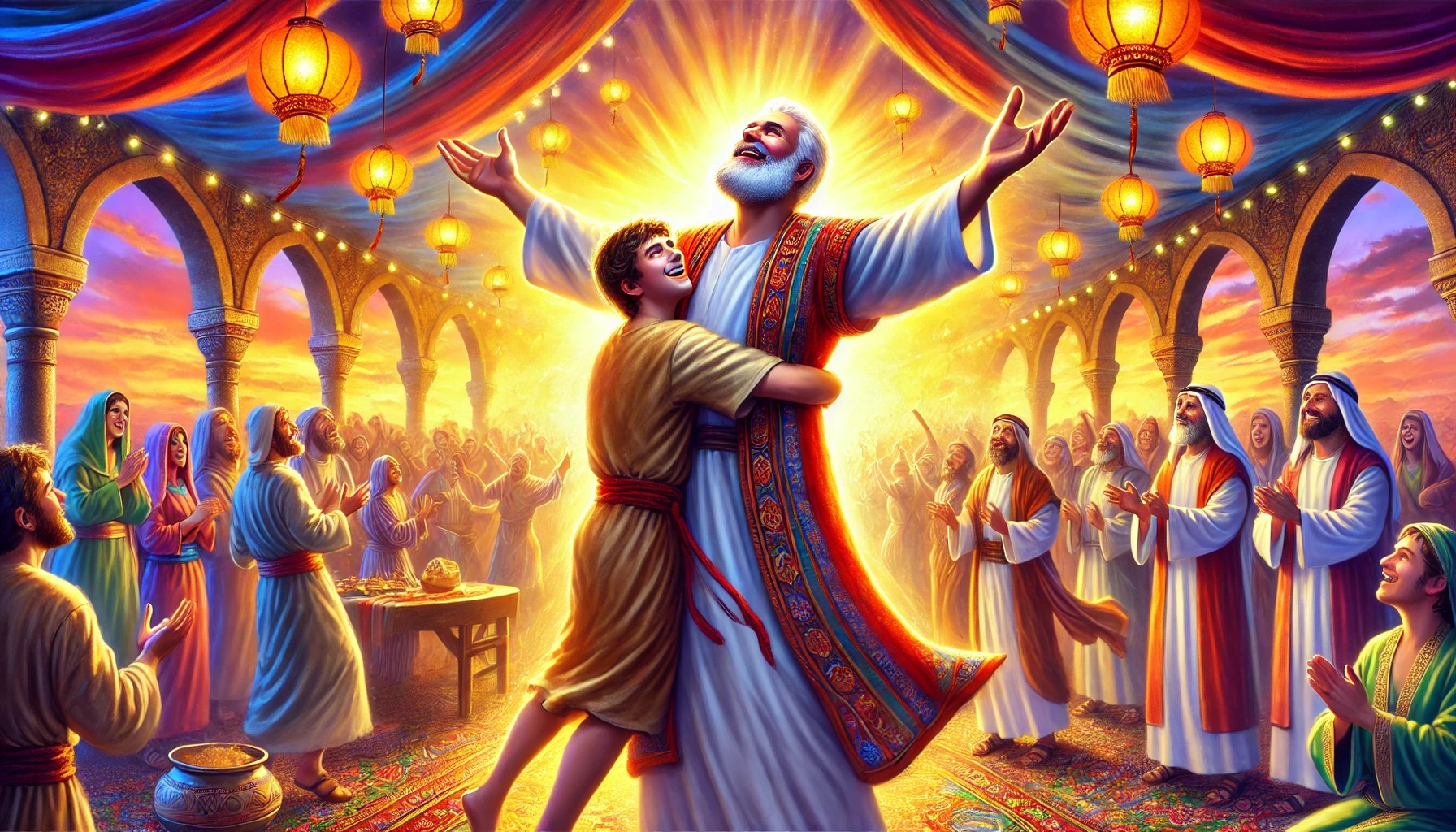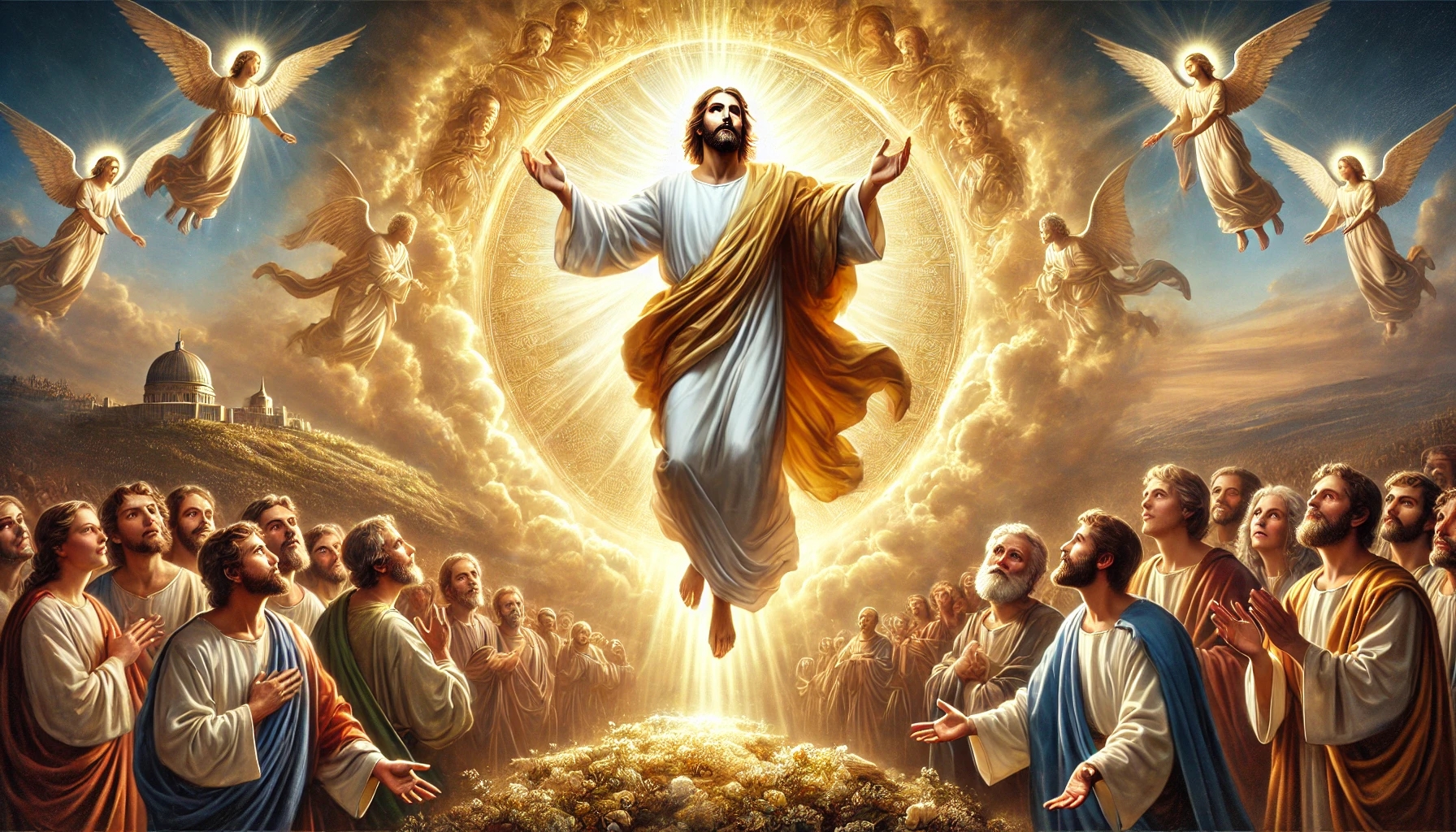The Message of the Book of Ephesians
The message of the Letter to the Ephesians can be summarized in several key themes:
1. Unity in Christ
The Letter to the Ephesians strongly emphasizes that all believers—Jews and Gentiles—are united through Jesus Christ. Through His sacrifice, Christ has abolished the division among people and created a new community: the Church. This unity is not based on human achievements but on God’s grace.
“For He Himself is our peace, who has made both one and has broken down the middle wall of separation, the enmity, in His flesh.” (Ephesians 2:14)
2. God’s Grace and the New Life
Paul highlights that salvation comes solely through God’s grace and not through human works. Believers are chosen and called by God to live a new life, marked by love, holiness, and the pursuit of righteousness.
“For by grace you have been saved through faith, and that not of yourselves; it is the gift of God, not of works, so that no one may boast.” (Ephesians 2:8–9)
3. The Church as the Body of Christ
A central image in Ephesians is the Church as the body of Christ, with Christ as its head. Every believer has a place and a role within this body. The Church is called to grow in love and unity, reflecting God’s wisdom and glory.
“And He put all things under His feet and gave Him to be head over all things to the church, which is His body, the fullness of Him who fills all in all.” (Ephesians 1:22–23)
4. The Mystery of the Gospel
Paul speaks of a “mystery” that has now been revealed: that Gentiles are co-heirs with the Jews and share in the promises of God. This reveals God’s comprehensive salvation plan for all humanity.
“This mystery is that the Gentiles are fellow heirs, members of the same body, and partakers of the promise in Christ Jesus through the gospel.” (Ephesians 3:6)
5. Practical Instructions for Christian Living
The letter calls believers to live lives of love, humility, forgiveness, and holiness. This applies to personal conduct as well as relationships within the Church, the family, and society.
“Walk worthy of the calling with which you were called, with all humility and gentleness, with patience, bearing with one another in love.” (Ephesians 4:1–2)
6. The Spiritual Battle
Another important theme is the spiritual battle against evil. Paul urges believers to put on the “armor of God” to withstand the temptations and attacks of the devil.
“Put on the whole armor of God, so that you may be able to stand against the schemes of the devil.” (Ephesians 6:11)
Summary:
The Letter to the Ephesians conveys the message that God, through Christ, unites all believers into one Church, saves them by grace, and calls them to live a holy life. The Church is to live in love, unity, and spiritual strength to make God’s glory visible in the world.
January 15, 2024
DAILY BIBLE READING – Ephesians Chapter 1
1 Paul, an apostle of Jesus Christ by the will of God, to the saints which are at Ephesus, and to the faithful in Christ Jesus:
2 Grace be to you, and peace, from God our Father, and from the Lord Jesus Christ.
3 Blessed be the God and Father of our Lord Jesus Christ, who hath blessed us with all spiritual blessings in heavenly places in Christ:
4 According as he hath chosen us in him before the foundation of the world, that we should be holy and without blame before him in love:
5 Having predestinated us unto the adoption of children by Jesus Christ to himself, according to the good pleasure of his will,
6 To the praise of the glory of his grace, wherein he hath made us accepted in the beloved.
7 In whom we have redemption through his blood, the forgiveness of sins, according to the riches of his grace;
8 Wherein he hath abounded toward us in all wisdom and prudence;
9 Having made known unto us the mystery of his will, according to his good pleasure which he hath purposed in himself:
10 That in the dispensation of the fulness of times he might gather together in one all things in Christ, both which are in heaven, and which are on earth; even in him:
11 In whom also we have obtained an inheritance, being predestinated according to the purpose of him who worketh all things after the counsel of his own will:
12 That we should be to the praise of his glory, who first trusted in Christ.
13 In whom ye also trusted, after that ye heard the word of truth, the gospel of your salvation: in whom also after that ye believed, ye were sealed with that holy Spirit of promise,
14 Which is the earnest of our inheritance until the redemption of the purchased possession, unto the praise of his glory.
15 Wherefore I also, after I heard of your faith in the Lord Jesus, and love unto all the saints,
16 Cease not to give thanks for you, making mention of you in my prayers;
17 That the God of our Lord Jesus Christ, the Father of glory, may give unto you the spirit of wisdom and revelation in the knowledge of him:
18 The eyes of your understanding being enlightened; that ye may know what is the hope of his calling, and what the riches of the glory of his inheritance in the saints,
19 And what is the exceeding greatness of his power to us-ward who believe, according to the working of his mighty power,
20 Which he wrought in Christ, when he raised him from the dead, and set him at his own right hand in the heavenly places,
21 Far above all principality, and power, and might, and dominion, and every name that is named, not only in this world, but also in that which is to come:
22 And hath put all things under his feet, and gave him to be the head over all things to the church,
23 Which is his body, the fulness of him that filleth all in all.
King James Version. Public Domain
Commentary
Introduction
The first chapter of the Letter to the Ephesians opens with a majestic portrayal of God’s great plan of salvation through Jesus Christ. Paul, called as an apostle by the will of God, addresses his letter to the believers in Ephesus and praises God for the spiritual blessings He grants through Christ. This chapter unfolds the profound truth about God’s election, redemption, and the gift of the Holy Spirit. Paul emphasizes the central role of Jesus Christ in God’s divine plan of salvation and encourages believers to grow in the knowledge of God and His glory.
Commentary
Paul begins with a powerful praise of God (verses 3–14), highlighting the grace that has been bestowed upon us in Christ. He underscores that God chose believers before the foundation of the world to be holy and blameless in love. This awareness should inspire humility and gratitude among believers. The redemption through Christ’s blood and the forgiveness of sins are especially emphasized, reflecting God’s immeasurable grace.
A significant aspect of this section is the “mystery” of God’s divine plan revealed in Christ: all things in heaven and on earth are to be united in Him. This demonstrates God’s all-encompassing and sovereign rule that transcends space and time.
Paul also speaks of the sealing with the Holy Spirit, who serves as a deposit and guarantee of the eternal inheritance (verses 13–14). This is a powerful assurance of God’s faithfulness and a source of comfort for believers.
In the second part of the chapter (verses 15–23), Paul offers a prayer for the church: he asks God to grant believers the Spirit of wisdom and revelation so that they may understand the hope of their calling, the riches of God’s glorious inheritance, and the greatness of His power. Particularly emphasized is Christ’s resurrection and His exaltation above all powers and authorities. Christ is the head of the Church, described as His body—filled and sustained by His glory and strength.
Summary
Ephesians Chapter 1 is a powerful praise of God for His eternal plan of salvation, fulfilled in Jesus Christ. Paul highlights God’s divine election, redemption through Christ’s blood, and the sealing with the Holy Spirit as a sign of the divine inheritance. He shows that Christ, as the head of the Church, reigns supreme over all things in heaven and on earth. The chapter invites believers to grow in their knowledge of God and to recognize the immeasurable greatness of His power. This understanding should strengthen their hope, gratitude, and trust in God’s sovereign guidance.
![]()

WEEKLY SPIRIT OF PROPHECY READING – Ellen White | The Desire of Ages
Chapter 87—“To My Father, and Your Father”
This chapter is based on Luke 24:50-53; Acts 1:9-12.
Read online here
Commentary
Introduction:
In Chapter 87 we learn about the final act of Jesus’ earthly life and His ascension into heaven. Jesus, having triumphed over death and sin, prepares to ascend to His Father in heaven. This moment marks the completion of His mission on Earth and the lasting promise of His presence in the hearts of believers. The place of His ascension—the Mount of Olives—is not merely a geographical location but a place rich with memories of Jesus’ life, prayers, and His struggle for humanity’s salvation. The ascension signifies the transition from Jesus as the suffering Redeemer to the triumphant King ascending to heaven.
Commentary:
Chapter 87 presents Jesus’ ascension as an act of victory and fulfillment. After completing His earthly mission and revealing Himself as the living Savior, He enters the heavenly realms. This moment is bittersweet for the disciples—filled with sorrow at parting from their Master but also with hope, as they now have confirmation of His victory over death. The Mount of Olives, once a place of Jesus’ prayers and struggles, now becomes the stage for His farewell. Yet, this farewell is not final; rather, it marks the beginning of a new era of hope. Jesus promises to remain with His followers and assures them that He will return one day in glory.
The angels affirm to the disciples that Jesus has not departed forever but will return in the same way they saw Him ascend. The image of heavenly hosts welcoming their King symbolizes Jesus’ future triumph at His second coming. Before this moment, Jesus raises His hands in blessing—a powerful affirmation of His presence and ongoing connection with the disciples. This blessing uplifts the disciples spiritually, filling them with joy and confidence in Christ’s continued presence and His role as their intercessor.
Summary:
Chapter 87 portrays Jesus’ ascension as a profound moment of exaltation and victory. The Mount of Olives, once a place of prayer and struggle, becomes the setting for His glorious ascent into heaven. After offering His disciples comfort and the promise of His return, Jesus is taken up by a cloud, disappearing from their sight. The angels proclaim that Jesus will return in the same way. This event conveys a dual message to believers: the comfort and assurance of Christ’s ongoing presence and the hope of His glorious return. The disciples return to Jerusalem with newfound joy and confidence, their hearts filled with praise and gratitude for the living Christ, who continues to live and intercede for them.
Source: https://fulfilleddesire.net/15-01-2025-ephesians-chapter-1-believe-his-prophets/












